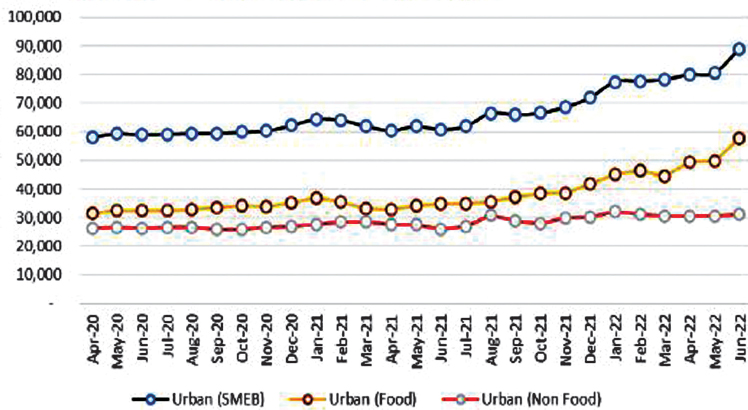Food price hike pushes up urban expenditure
The survival minimum expenditure basket (Smeb), the absolute basic amount required to maintain existence and cover life-saving needs for the urban households, has registered a 15.8 percent increase.
In its recent analysis of minimum expenditure basket for Malawi, World Food Programme says the survival expenditure in urban areas during the first week of June rose by K8 000 to K88 836 per month from K80 554 in May 2022.
The report further said there have been huge increases in the price of maize by 20.2 percent, beans by 17.4 percent, vegetables by 45.3 percent and dried fish by 20.9 percent.

Reads the analysis in part: “This year, several local and external factors have affected the price of maize grain, making the price highly volatile and unpredictable.
“The factors include the ongoing crisis in Ukraine, the knock-on effects from the Covid-19 pandemic, the large-scale flooding experienced earlier this year and prolonged dry spells that occurred early in the planting season.”
The national average price of maize grain increased to K214 per kilogramme (kg) as of the first week of June 2022.
This is a 6.5 percent increase from the May average price of K201 per kg.
The June price is also 68.5 percent higher than that of June last year, according to the report and it is 71.2 percent higher than the five-year monthly average price for June.
The prices of cooking oil and sugar, which rose the most in the first quarter of the year, remained stable during this round. Since the removal of the 16.5 percent value added tax in April 2022, the price of vegetable oil has remained relatively stable but still hovers at record high levels.
The national average price per litre for vegetable oil for June was K3 658, increasing by 1.8 percent from the national price recorded in May.
Consumers Association of Malawi executive director John Kapito said in an interview that if not controlled, the situation will escalate to acute poverty for a bigger population than it is now.
“Poverty will deepen among Malawians because they can no longer stand the cost of living and the poverty will hit harder on the urban masses,” he said.
Centre for Social Concern Programmes Coordinator economic governance officer Bernard Mphepo said with a minimum wage of K50 000, Malawians should brace for tough times ahead.





